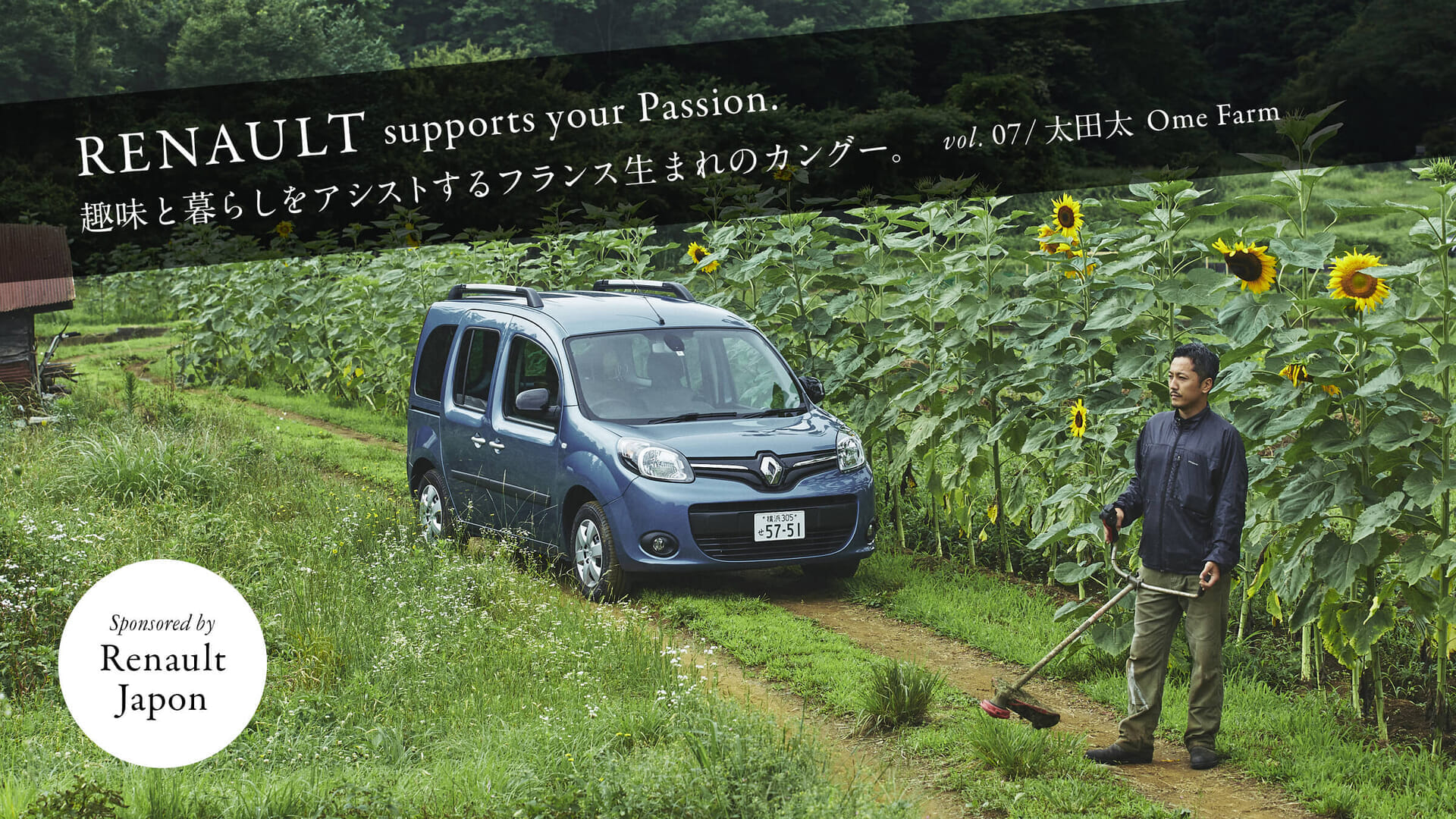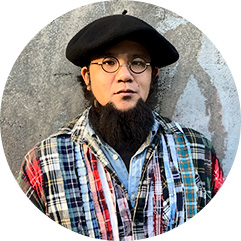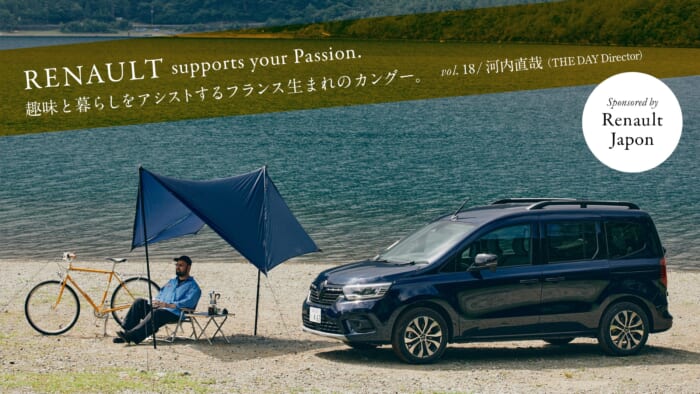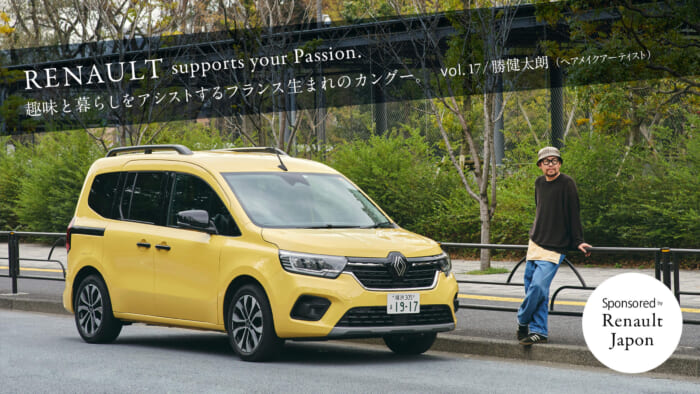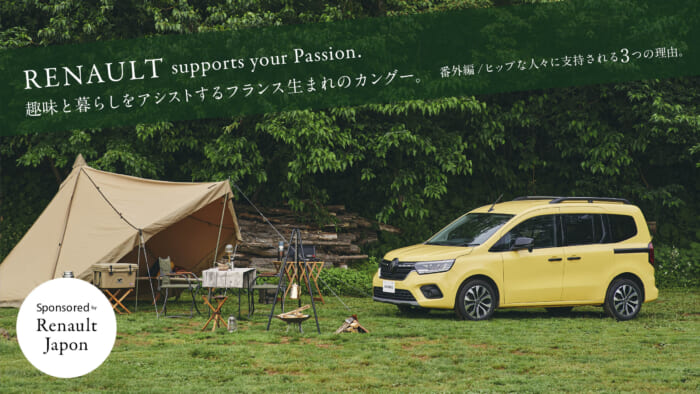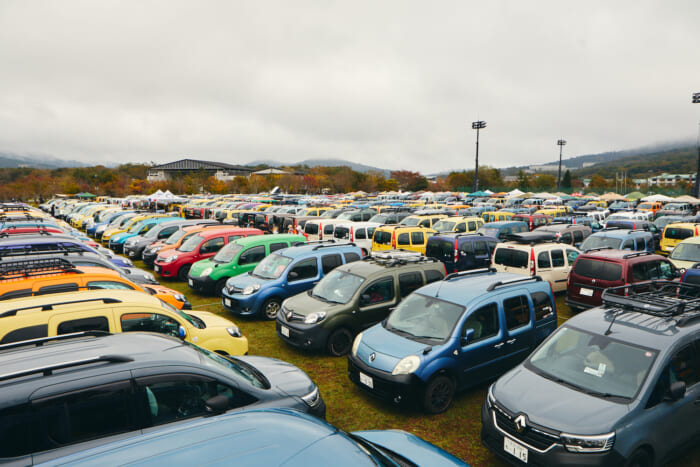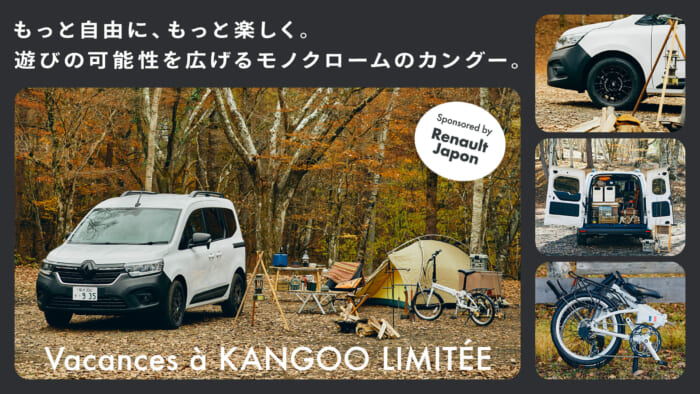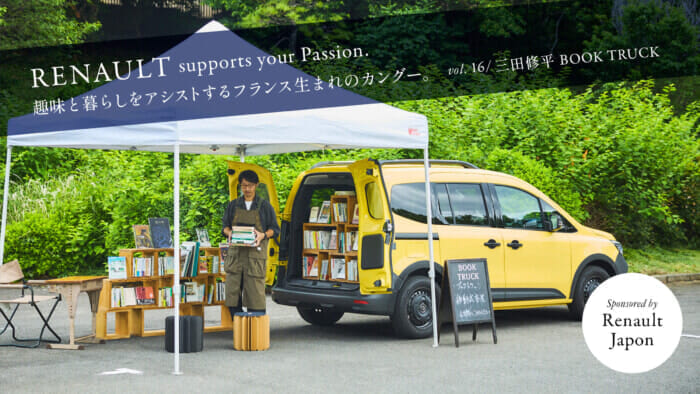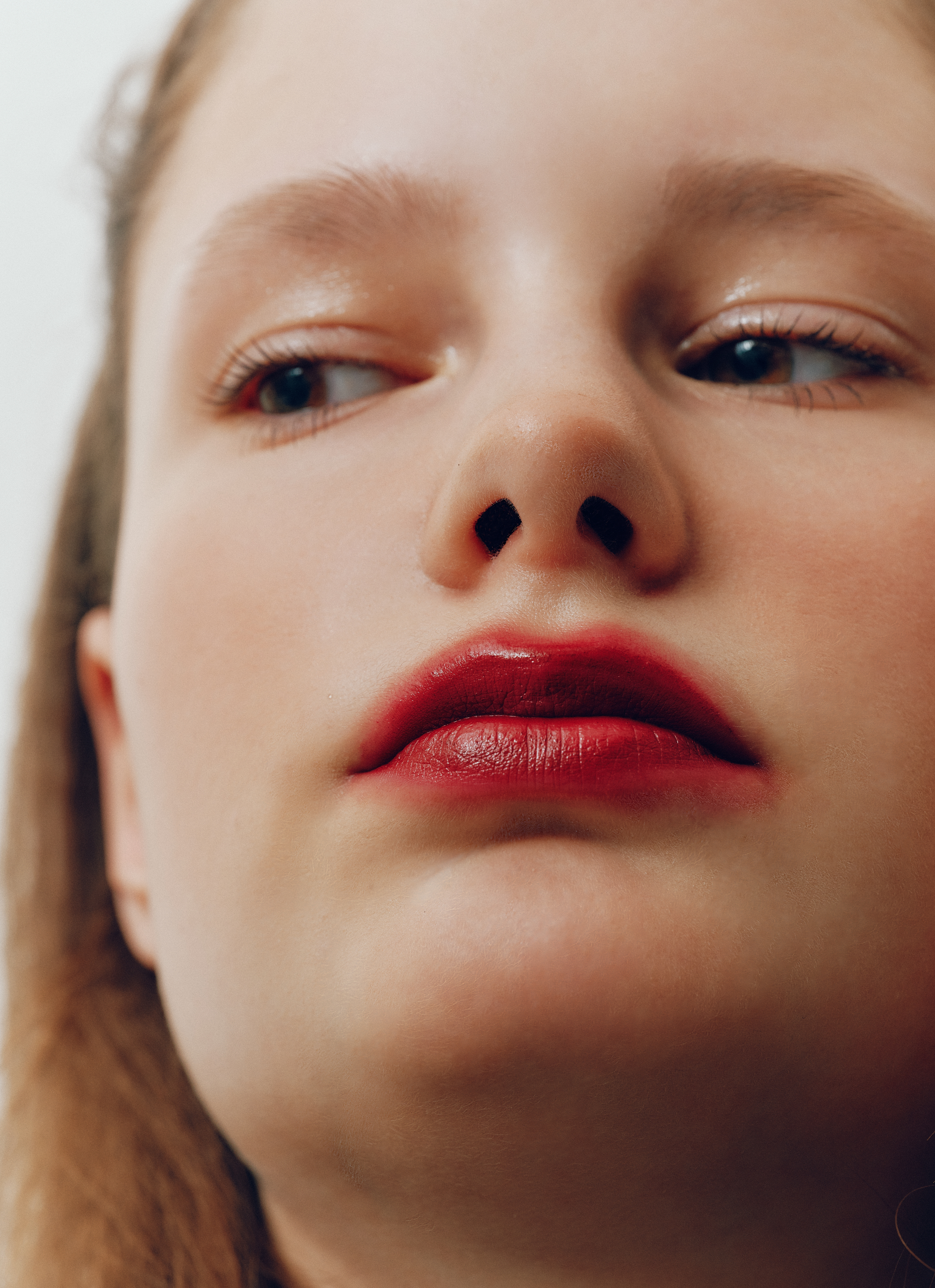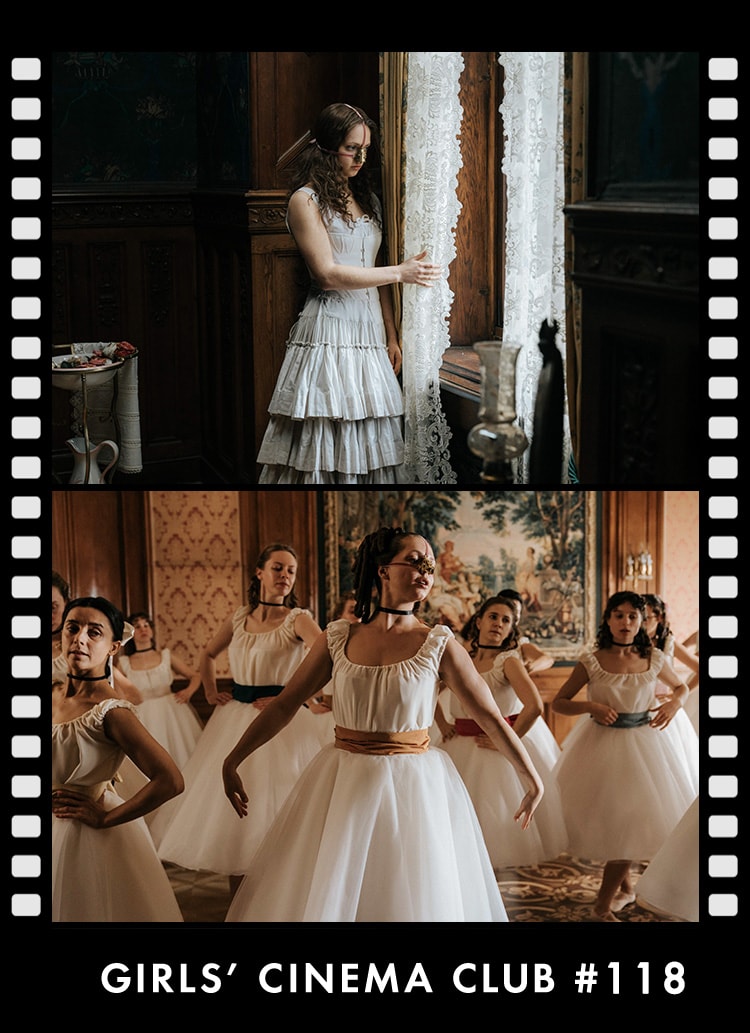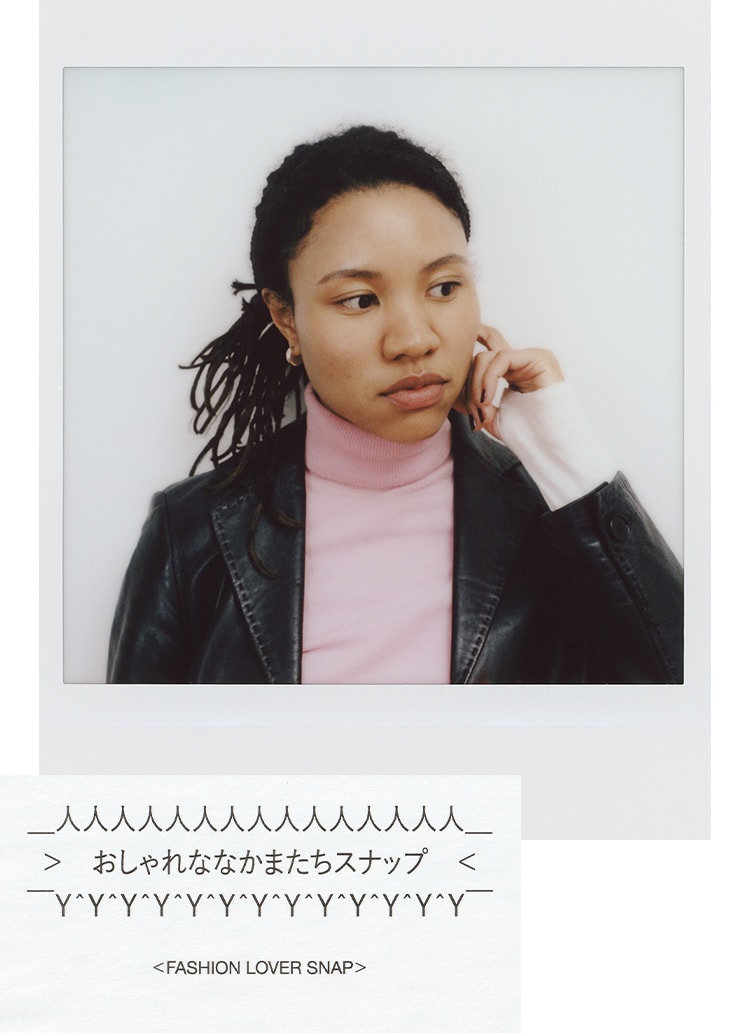European cars are still well designed.

After completing all the work at the farm office, we pack up the necessary tools into the "Kangoo" and head out to the fields.



Many of my colleagues drive 'Kangoo' cars. We have a stall at the Farmers' Market held in front of the United Nations University, where we also use the Kangoo to transport and sell our products. We have a stall at the Farmers' Market held in front of the United Nations University, and many people use Kangoo vehicles to transport goods and set up stalls there as well. If you open the doors of the Kangoo, it becomes a store. When I see people like that, I think they are very sensitive.


After packing our bags, we finally left for the field. Along the way, Mr. Ota talked about his image of "Renault.
I often saw "Renault" in Europe. I have an impression that they are somewhat cute. Japanese cars have a functional image, but I don't find their designs attractive. In this respect, European cars are attractive. I feel that they follow designs from the past and chew on traditions. Of course they are pursuing the future, but they are also saying, "This is old, but isn't this kind of design good too? I like things that can be used for a long time. I like things that can be used for a long time, so chasing after only new things seems instantaneous and won't last long.

I realized that the vision I had set forth was not wrong.
Once we arrive at the farm, we immediately begin the harvesting process. Ome Farm has three fields, each of which grows vegetables suited to its location.


As I mentioned earlier, it takes time to harvest our vegetables because we grow them slowly and without pesticides. Other farmers don't do this because they want to produce quickly and sell quickly. It is just like fast fashion. Losses are also great. But if you take the time to prepare and grow crops like we do, you can produce the best vegetables. There is some backlash, but there are many people who understand us.

To begin with, Mr. Ota says, it takes a long time to create the soil used in "Ome Farm. Harvested vegetables and other unused parts are mixed with fallen leaves, rice husks, and other dry materials and fermented to break down the moisture in the vegetables. At the same time, he says, the fallen leaves have indigenous ( bacteria ) that decompose even insects and worms. Then they adjust the moisture content, cut them back, and it takes about 11 months until the decomposition is complete, the smell is gone, and everything is in order.
I think fast fashion is a great business. But if we did the same thing, we would lose our originality, and good chefs don't want vegetables like that. That's why I talk with my colleagues only about how to produce delicious vegetables and how to prevent pests and diseases in the cycle.


The best vegetables are then delivered to restaurants in Tokyo, where they are cooked and transformed into delicious dishes. The vegetables are also delivered to farmers' markets and other sales outlets. This not only delights many customers, but also ensures the safety and security of food.
Not long after we became independent as Ome Farm, my daughter's condition gradually improved. The doctors told her that she could reduce the amount of medication she was taking, and as soon as possible, she could stop taking it altogether. They said it was incurable, but eventually she was cured. I gave him candy and other sweets as much as anyone else, but I fed him pesticide-free vegetables from a young age and gave him healthy-raised eggs and meat as much as possible for his meals. That cured him completely, and I realized that the vision I had set out to achieve was not wrong.

After gaining such a realization, Mr. Ota thought, "Next, I should also share this experience with people suffering from congenital diseases," and he made a conscious effort to strongly appeal to people suffering from the same problems.
I think it is important to keep doing what we do and keep communicating our beliefs without bending. In Japan, many people are implied by commercials. But I think it's good that there are people who say loudly, "No! I think it's okay for some people to say "No! We are planning to open a store in Asakusabashi in July as a place to make such an appeal. A friend of mine from high school is opening a yakitori restaurant in Asakusabashi called "Yakitori Unika" using only happy chicken, and we will open a restaurant called "Unika Onikai by Ome Farm Kitchen" on the second floor to convey our message through food.

I think many people thought about what was important to them during the Corona Disaster. Many people must have thought about food. I think the significance of the efforts of farmers like us has become even greater. We want to ensure the quality and safety of our vegetables from the seedling stage to the moment they are put on the plate for the customer to eat. I would be happy if our Asakusabashi restaurant can give you a sense of this desire.


We can give back to the happiness of many people and there are no negative factors.
Starting with soil preparation without the use of pesticides or chemical fertilizers, pure seeds are grown and pollinated with the help of honeybees. The vegetables are carefully harvested one by one and delivered to chefs and households, and the surplus is used again as material for compost. The honey produced by the bees is also delivered to many people as a harvest of "Ome Farm. In other words, there is a cycle without waste.

I believe that the way to strengthen the circle of such a cycle is to close the gaps between the many dots within the circle. When I open my next restaurant, I think there will be some surplus foodstuffs. We are thinking of raising poultry now, and if we feed the chickens with our own vegetables and other reliable food, even if it is surplus food, we will be able to produce healthy eggs. That's what I'm thinking about."


What has emerged from the cycle thus established, Mr. Ota continues, is "zero negativity.
We are in the business of providing the harvest, but I don't feel guilty about it. When I was in the apparel business, I would sell bags and accessories that cost hundreds of thousands of yen, and I would ask myself, 'Is it really worth it? But the vegetables we produce are healthy. But the vegetables we produce make people healthier, and we tell our customers how to cook them and how to enjoy them. So, they may be a little more expensive than ordinary vegetables, but we make sure that they are worth the price. When I think about it, I can give back to the happiness of many people, and there are no negative factors at all.

As the phrase "food, clothing, and shelter" suggests, food is the starting point of life and is indispensable for survival. I believe that finding its essence and enhancing it will lead to a richer life. In closing, we asked Mr. Ota what his ideal food, clothing, and shelter would be.
I want to wear the same clothes for a long time. I want to wear the same clothes for a long time, and the same goes for a car. I don't want to buy something that I don't feel even a little bit sad when I let go of it, because I paid for it. I think longevity is the sign of a good product. In agriculture, we persistently produce healthy vegetables for our customers to enjoy. It is not a relationship where one is higher and the other is lower. They are equals. I think this kind of value is the essence of a long-lasting relationship.



